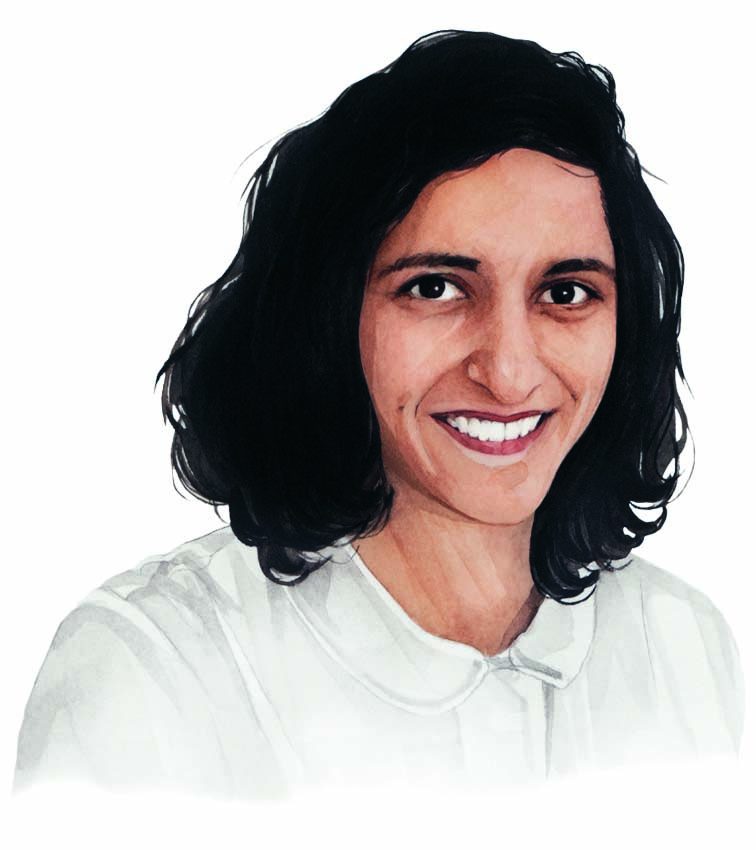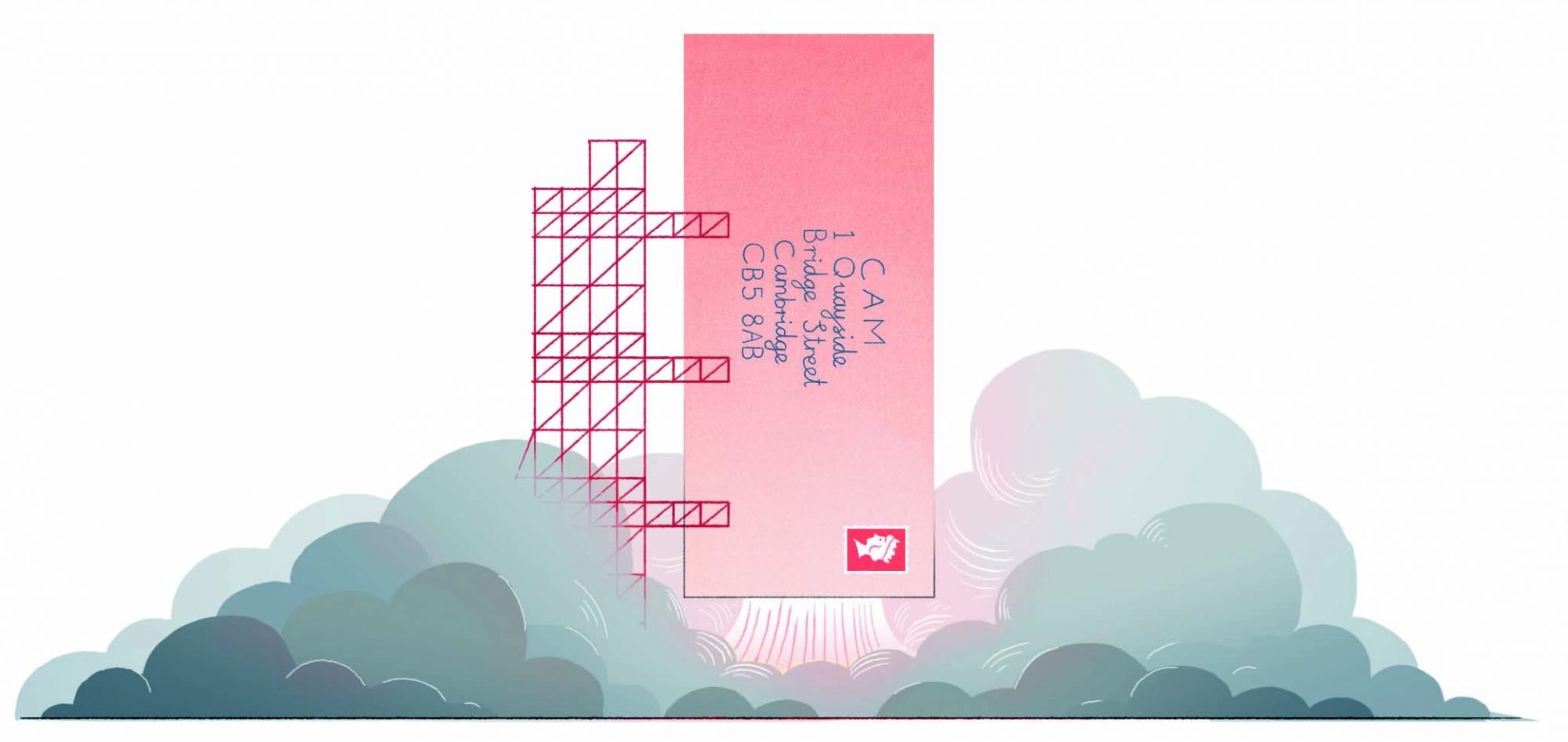Inbox 82

Editor’s Letter
On 2 October, our new Vice-Chancellor, Professor Stephen Toope (Trinity 1983), took office – and ownership of a fairly substantial in-tray. We speak to the man who will lead Cambridge through what are likely to be significant years. And if you’d like to know more about his thoughts on Brexit, the role of experts and technology, you can read his speech in full.
The affairs of the world seem pleasantly puny in comparison to the puzzles of the cosmos. Gravity is one of the universe’s great mysteries: we know what it does, but we don’t actually know what it is. Some of Cambridge’s leading cosmologists and physicists explain just what we do know – and why what we don’t has the potential to completely revolutionise our understanding of the universe.
Elsewhere, we investigate the pleasures of the bop – that most quintessential of College entertainments – and we go behind the scenes at the new Museum of Zoology.
Thank you for your letters on antiquarian bookshops, your thoughts on where economists are going wrong and your bibliotherapy suggestions – as ever, you can read the amusing and erudite thoughts of CAM readers in full on our website.
Mira Katbamna (Caius 1995)
Inbox

Bibliotherapy
Re your amusing cover – and pace cartoon traditions – I’m sure a perfectionist would not allow so many dribbles on his paint pot.
Barrie Lees (Peterhouse 1962)
A perfectionist would have a step-ladder.
David Potts (Churchill 1970)
As an addition to the suggested bibliotherapies in CAM 81, might I suggest Matt Haig’s The Humans as a cure for those at risk of becoming trapped in
an ivory tower? When Professor Andrew Martin suddenly ceases to understand how to ‘be human’, he does have the excuse that he is actually an alien imposter. As he learns how to navigate the world around him, he learns that ‘being human’ is far more complicated than he imagined. A reminder that the true marvellous things in life are found in human relationships, however wondrous the contents of a petri dish might be.
Adelheid Russenberger (Newnham 2010)
My room, your room
Room I2 was mine between 1957-59. On my first day, I was warned that I must never, even on the coldest Cambridge winter night, shut my bedroom window after 11 pm. That was the hour by which, in those days, all undergraduates had to be inside the College. Those who were late had to climb in, and the bar across my open bedroom window constituted the first
(or it may have been the second) foothold in the ascent from Senate House Passage to the roof above my room. This meant I was able to keep an eye on the night life of the College, and I enjoyed the cheerful cries of ‘Good night, Alex’ from passing climbers, as I lay reading in bed.
One night there seemed to be more noise than usual from the passers-by in Senate House Passage, but it still came as a surprise to wake to the news
that persons unknown had passed the night in lifting a car up on to the roof of the Senate House, where it remained for some time for all to see.
Alex Garvie (Caius 1957)
A new normal
You say nothing (CAM 81) about the biggest current problem in economics: the fact that expansion cannot continue, growth has to stop, because
the world is running out of resources. There are too many people on the planet, gobbling them up. What a disappointment. Where is the much-needed treatise on prosperity without growth?
Anne Stotter (Newnham 1968)
I was surprised to read this article in which three experts were consulted, and not find any mention of the issues of climate change or sustainability.
How can you have a meaningful discussion about the future of the global economy without discussing these issues? Perhaps you should have spoken to someone from the New Economics Foundation?
Susanna Riviere (Churchill 1973)
Economists seem unable to see beyond their fascination with growth. It is apparent that the growth our society has been pursuing over the past, say, 150 years, and selling on to the rest of the world, is not sustainable, is not stable, and has been instrumental in the destruction and pollution of the world – literally, not metaphorically. The detailed arguments are, of course, more complicated but the big picture is clear. When will economists stop being in cahoots with politicians and wake up and smell the coffee? Then they might help fashion a modicum of salvation rather than peddling myopia.
Maurice Herson (Corpus 1968)
On age
I would just like to say how much (at the age of 87) I enjoyed the very readable and sensible feature in your Easter issue On Age. I am constantly astonished by the number of people who, without having any physical or mental reason to retreat from creative life when pensioned, quite simply assume that, from that moment onwards, everything will and must go downhill.
Graham Dukes (St John’s 1948)
I am 90 and my connection with the University is, of necessity, a bit tenuous, but I would like you to know that I read CAM with interest and pleasure, and a very strong suspicion that the place is a lot more exciting and lively than it was in my day!
Julian Ayres (Corpus 1948)
Bookshops, continued
I was delighted to read Trevor Lyttleton’s letter in your last issue putting right the version of the Bookshop ditty. I can only confirm that I believe this to be the version taught me by Reuben Heffer, my father.
William Heffer
I was pleasantly surprised to see Roger Smith’s (St Catharine’s 1957) letter about the bookseller, G David. His discovery of David’s came commendably early in his time at Cambridge. I was introduced to antiquarian bookshops by Tim Munby, the librarian at King’s. Tim would welcome anyone who showed an interest in books.
He would tell stories of how, when an undergraduate, he and his friends would visit David’s market stall and buy anything they could that dated from the 18th century or earlier! As a poverty-stricken county major student, I could not run to such extravagance. But I did catch the bug: when I am in the city, I visit David’s. Roger’s letter caught my eye for a second reason; our time at College overlapped by a year.
Roger Smith
(King’s 1955)
Write to us
We are always delighted to receive your emails, letters, tweets and facebook posts.
- By email
- cameditor@alumni.cam.ac.uk
- By writing
- CAM, 1 Quayside, Bridge Street, Cambridge, CB5 8AB
- By Twitter
- @Cambridge_Uni
- By Facebook
- facebook.com/cambridgealumni
Please mark your letter ‘For publication’. Letters may be edited for length.



